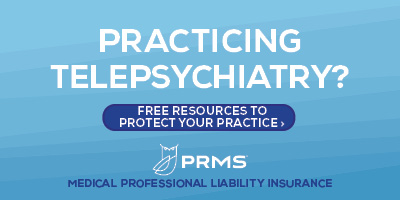By John P.D. Shemo, MD, DLFAPA
Medical Director
Psychiatric Alliance of the Blue Ridge
Associate Clinical Professor, University of Virginia
The APA Assembly Meeting was held November 1-3, 2024, in Chantilly, VA, just outside Dulles Airport – one of the least expensive places to fly into from around the country. For these meetings, district branch representatives attend from all over the United States including Hawaii and Alaska, as well as from Puerto Rico and Canada.
It is a tradition that at the start of the first plenary session of each Assembly Meeting a territorial acknowledgement is presented regarding a recognition of what groups of indigenous people had lived in the area where that meeting is being held. Given that this meeting was being held in Virginia, the speaker of the Assembly requested that Adam Kaul, Sherin Moideen, and I present the territorial acknowledgement.
Typically, this acknowledgement has consisted of mentioning the names of the relevant territorial tribes or nations. I believed that it would be more meaningful if, as a teaching moment, something more was said about their cultures. Our presentation, therefore, was as follows:
I would like to acknowledge the Pamunkey, Chickahominy, Chickahominy Eastern Division, Upper Mattaponi, Rappahannock, Monacan, and Nansemond people on whose lands we have gathered. I recognize we are guests of these ancestral lands of indigenous people who came before us and would like to honor them and their ancestors.
The indigenous people were, of course, more than just tribes and nations, they were cultures and made contributions. One example would be the Tuscarora. The Tuscarora were originally located in what is now Virginia and North Carolina. In the 1700s, the tribe moved to what is now upper New York State and Canada to join the Haudenosaunee (Ho-de-no-sau-nee) and become the sixth tribe under the “Great Law of Peace”, the original tribes being the Cayuga, Mohawk, Oneida, Onondaga, and Seneca. The Haudenosaunee are also called the Iroquois Confederation. However, the name Iroquois is actually a term of derision used by their chief rivals, the Algonquians, which was then picked up by the French and later the British – it means “snakes.” The name Haudenosaunee means, alternatively, The People of the Long House or The People who Build, making it interesting that the Mohawk were the construction workers for many of the skyscrapers in New York City. It is noted that Thomas Jefferson did write that the Great Law of Peace was the model on which much of the United States Constitution was based.
Both the APA President, Ramaswamy Viswanathan, MD, Dr. Med SC, and the Speaker of the Assembly, Stephen Starks, MD, MBA thanked us for this addition to the acknowledgement.
FEDERAL LEGISLATION UPDATE:
- A requirement was scheduled to go into effect at the end of 2024, that Medicare patients receiving “Telehealth” must have an in-person visit within the past six months before they can access telemedicine healthcare. While I personally do this, clearly there are cases where this would create significant hardship. The APA, with other groups, did support passage of the bipartisan “Telemedicine Healthcare Access Act” which blocked this requirement. It is my understanding that this bill has passed.
- The APA has urged continued funding, at least at the current level, of the Minority Fellowship Program (MFP) which has been in place for 50 years.
- APA is urging legislation to enact an annual permanent inflationary payment update to the Medicare Physicians Fee Schedule (MPFS).
- APA joins with the AMA on a physicians’ scope of practice issue opposing the “Equitable Community Access to Pharmacist Services Act,” allowing pharmacists to perform services and expand Medicare coverage for pharmacist testing and treating patients for certain illnesses.
- APA input to FDA’s Psychopharmacologic Drugs Advisory Committee: The APA’s position is to support research and therapeutic discovery into psychedelic agents providing they are conducted with the same scientific integrity and regulatory standards applied to other emerging therapies in medicine. The focus on this is in part based on the use of midomafetamine (MOMA) in the treatment of post-traumatic stress disorder. It is noted that the current estimate of the cost of achieving FDA approval is about 2 billion dollars.
- APA has responded to CMS (Center for Medicare and Medicaid Services) proposed rules on hospital services which includes increased payment for ECT and allowing it to be done in ambulatory settings, and increased payment to hospitals when providing care for patients experiencing homelessness in recognition of the complexity of discharge planning for such patients.
- APA did submit comments to the DEA opposing the recommendation to transfer marijuana from Schedule I to Schedule III controlled substance categories in recognition of the strong association between its use and the onset of psychiatric disorders in vulnerable populations.
- APA is supporting a bill to increase behavioral healthcare access which requires health insurance plans to cover three primary care and three behavioral healthcare visits per plan year without cost-sharing requirements. The goal of this is to address the tendency of some people to delay getting evaluation and care for emerging symptoms early in a plan year when they would have to self-pay the entire cost. The argument for this being that earlier evaluation and care could actually lower overall costs.
- Louisiana is considering legislation which would allow “medical psychologists” to enter into collaborative agreements with nurse practitioners and physician assistants (now calling themselves physician associates) during the period when they are required to have a collaborative agreement with a medical doctor.
The APA has developed a poster you can obtain for display in your office waiting room entitled “Fair Insurance Coverage: It’s The Law” stating that “Federal law prohibits your private health insurance plan from discriminating against you because you have a mental illness, including a substance use disorder. Coverage for a mental health concern now must be equivalent to coverage for physical health problems, like heart disease, diabetes, and cancer.” It then outlines the “Top 10 things Everybody Needs to Know About the Federal Mental Health Parity Law.” These “10 things” are as follows:
- You are entitled to the evidence-based treatment your physician says is necessary for your mental health or substance use disorder. Your health plan cannot require you to fail-first at less expensive treatments if it does not have the same “fail-first” requirement on all other illnesses covered by your plan.
- With few exceptions, your co-payment or co-insurance for your mental health benefit should not be higher than it is for other medical care, and you should have only one deductible and out-of pocket maximum that covers all of your health care.
- When you visit a psychiatrist for medication management and for psychotherapy on the same day, you should pay only one co-payment.
- You should have access to an “in network” mental health clinician who: Is qualified to treat your condition, can see you in a reasonable amount of time at a location accessible from your home. If you are unable to find an available in-network mental health clinician, your plan should provide you with assistance to find one.
- Mental health related visits or treatment should not require pre-authorization, unless your plan requires pre-authorization for most other medical care.
- The number of visits or hospital days should not be limited, unless similar limitations apply to most other medical illnesses under your plan.
- Your health plan should pay even if do not complete the treatment or a prior recommended course of treatment.
- Your health plan is required to provide you with a written explanation of: How it evaluated your need for treatment, why it denied the claim, the basis for its conclusion that the plan complies with federal law (a “comparative analysis”).
- You have the right to appeal your plan’s decision about your care with your plan and with an independent review organization. Check with your state insurance commissioner’s office.
- If you have an out-of-network plan benefit in your plan and see an out-of-network psychiatrist, the health plan should reimburse you for a portion of the amount you paid for the visit. If the amount you are reimbursed is significantly less than the amount the health plan pays to other doctors who are out-of-network, this may be illegal. You can see what doctors are paid by checking the explanation of benefits you receive from the plan.
Unfortunately, mental health parity legislation still does not have adequate mechanisms for monitoring compliance beyond patient complaints or specification of what the consequences will be for insurance entity noncompliance.
POSITION STATEMENTS AND ACTION PAPERS:
There were 42 Position Statements and Action Papers considered at the 101st Assembly Meeting. Position Statements are developed by the various component committees of the APA. The Assembly may only vote to approve or disapprove the Position Statements as written. The Assembly may not make revisions. If a Position Statement is not approved by the Assembly, it is sent back to the composing component to be reworked. There is an Assembly liaison on each component who should then share with the members of the component the concerns expressed by the Assembly.
Action Papers are authored by members of the Assembly and occasionally Assembly Area Councils. They may be coauthored by non-Assembly APA members and endorsed by other groups or organizations. The Action Papers will be debated and modified by vote in the Reference Committees at the Assembly meeting. The paper will be addressed by the full Assembly if any single Assembly member requests that the Action Paper be removed from the “consent calendar.” If the Action Paper is passed, in either its original form or with edits/modifications, it is then sent to the Joint Reference Committee to decide what next step should be taken, such as referral to a relevant APA Committee or occasionally directly referred to the Board of Directors.
The following is a sample of the 42 Actions Papers and Position Statements considered at this meeting:
- Proposed Position Statement on: Non-Physician Practitioner Training Interference with Psychiatry Resident Training
- Revised Position Statement on: Residency Training Recommendations in Substance-Related and Addictive Disorders for the General Psychiatrist
- Proposed Position Statement on: Comprehensive Sexual Education for Children Adolescents, and Young Adults
- Action Paper: Creation of APA Resources Supporting Housing as a Primary Treatment of Severe Mental Illness
- Action Paper: Access to Stimulant Medications for Treatment of ADHD
- Revised Position Statement on: The Social, Structural, and Political Determinates of Mental Health and Health Equity
- Revised Position Statement on: Diverse Representation in Medicine
- Revised Position Statement on: Discrimination Against Transgender and Gender Non-Conforming Individuals
- Action Paper: Social Media Use Issues in Children and Adolescents
- Proposed Position Statement on: The Mental Health Impact on People Displaced by Climate Change
- Revised Position Statement Supporting: Implementation of the Mental Health Parity and Addiction Equity Act (MHPAEA or Parity Law)
- Revised Position Statement on: The Need to Maintain Immediate- and Long-Term Inpatient Care Access for Persons with Serious Mental Illness
- Action Paper: Simplifying the Medicare Risk Adjustment Process to Reduce Physician Practice Administrative Burden
- Action Paper: Substance Use Disorder Continuum of Care Parity with Other Mental Disorders
- Proposed Position Statement on: Bias in Law Enforcement
- Action Paper: A new Educational Experience for Emergency Medical Resident Physicians
- Action Paper: Prioritize Clinical Diagnosis Over Neuropsychological Testing for Autism Spectrum Disorder
- Action Paper: Involuntary Treatment for Substance Use Disorders: From Criminalization to Evidence-Based Treatment
- Revised Position Statement on: Assuring the Appropriate Care of Pregnant and Newly Delivered Women with Substance Use Disorders
- Proposed Position Statement on: The Impact of Ageism on the Mental Health of Older Adults
- DSM Item: Approve the Addition of “Moral” to the existing “Religious or Spiritual Problem” in the “Section of Other Conditions That May Be a Focus of Clinical Attention”
- Action Paper: Advocating for the Creation of a Work Group to Assess and Standardize Safety Criteria Across Psychiatry Residencies
As always, Adam, Sherin, and I are available to discuss concerns of PSV members, to discuss these concerns in APA Assembly Meetings and potentially to craft Action Papers addressing these concerns.







